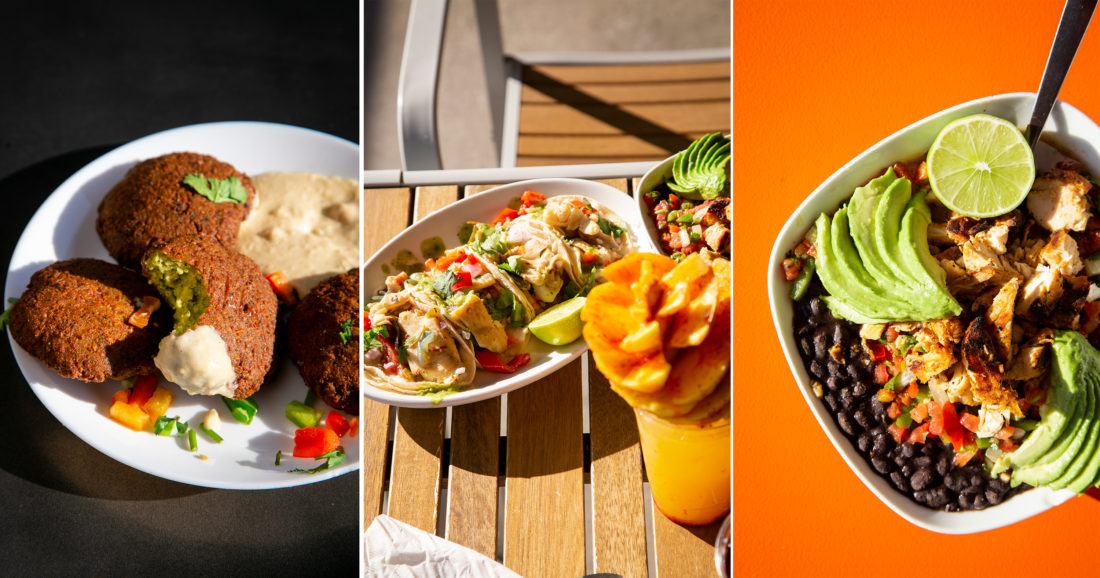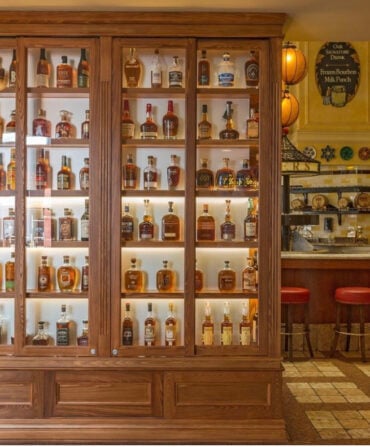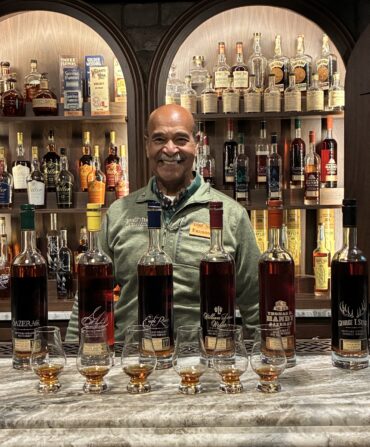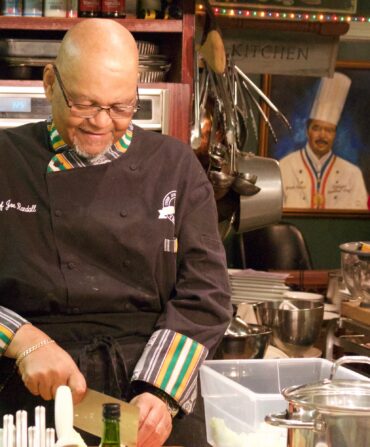“Food closes the space between you and me,” says chef Fayha Sakkan. “You taste something I cook, and you like it. You say ‘This is amazing! What is this in it?’ And we start a conversation. The food becomes a bridge from my culture to yours.”
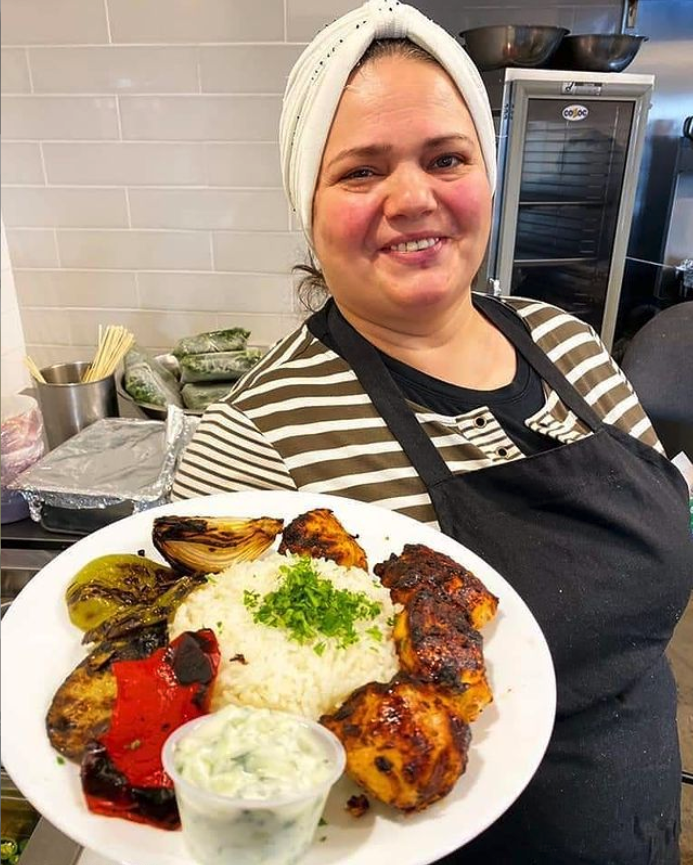
Sakkan, a Syrian immigrant, builds just these kinds of bridges at Global Café in Memphis, Tennessee, an international food hall that’s helping immigrant and refugee food entrepreneurs make a living and share their culinary cultures, one empanada and spoonful of tabbouleh at a time. There, she cooks dishes from her native country alongside other chefs such as Maria Bracho, a refugee who fled political unrest in Venezuela in 2014. “Every bite opens a window to a wider world,” says Sabine Langer, the owner of Global Café.
After Langer, an immigrant from Switzerland, moved to Memphis from California, where she originally worked as an au pair, she began volunteering with an organization aiding refugees and noted that many of the women were cooking on the side for extra income, but had no means to fully capitalize on their skills. “Even a food truck is very expensive,” Langer says. Despite zero restaurant experience, she founded Global Café in 2018 as a remedy, empowering its chefs to create their food with no up-front costs and employing a profit-sharing business model that’s led to home ownership and the paying off of debt. General manager Juan Viramontes, who emigrated from Mexico at age eleven, joined Langer, lured from California by the chance to put his restaurant background to meaningful use and to expand his horizons. “Getting to know people from all over is the best way to grow,” he says.
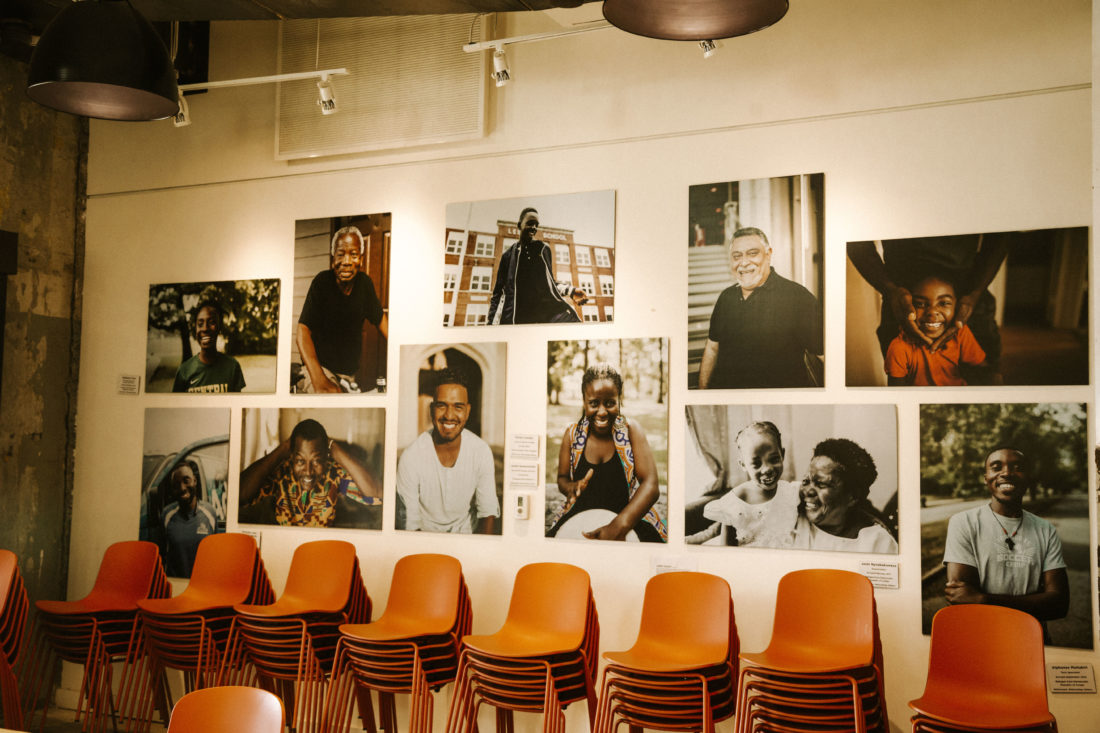
Dubbing itself a “world food café,” the restaurant by its nature has become a true melting pot. Earthy curry, warm clove, and sharp garlic perfume the small but bright space at Crosstown Concourse, a mixed-use development fashioned from a once-abandoned Sears distribution center. Customers can choose from Sakkan’s Syrian dishes, such as baba ghanoush; Bracho’s Venezuelan cuisine, including asado negro, tender sliced beef smothered in midnight-black adobo; Sudanese options such as sambusa, a crisp pastry bursting with carrots, onion, and peppers (now being created by assistant Somaya Mohamed, after the café’s third chef, Ibti Salih, recently left for time with family); and tastes of Mexico from Viramontes, including chorizo tacos dripping with fiery roasted-tomato salsa and hand-crafted margaritas.
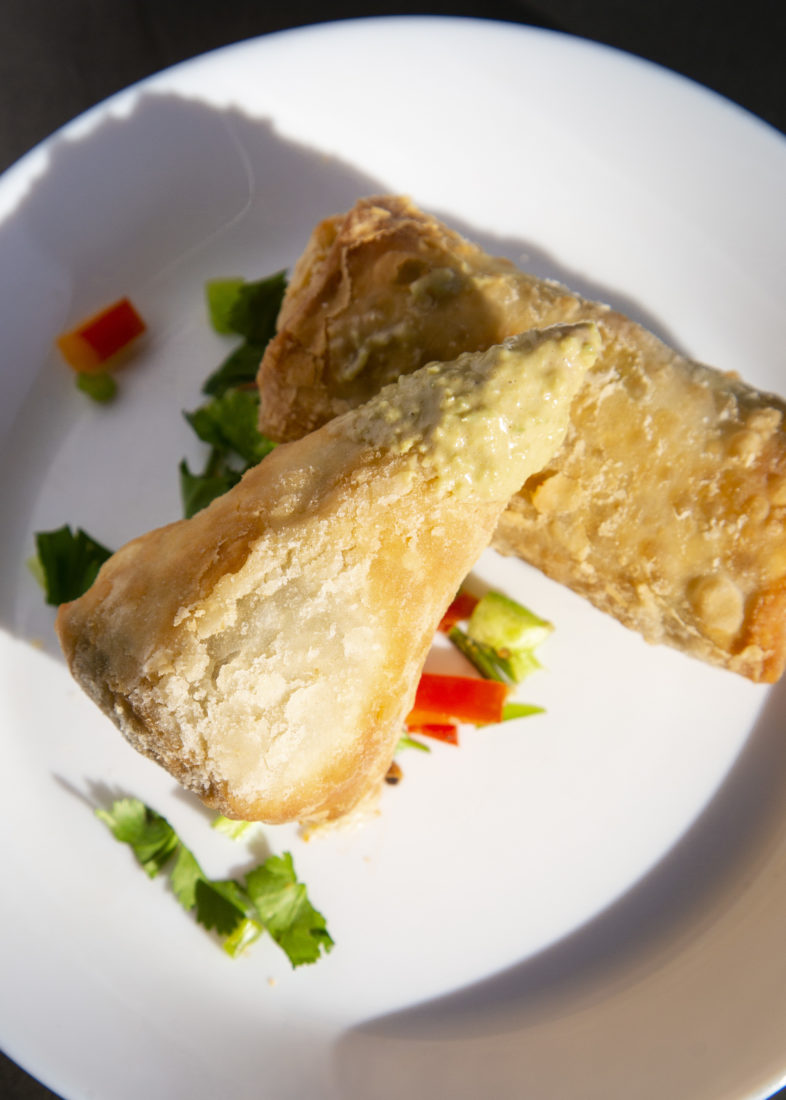
While the café is currently offering pick-up, delivery, and patio dining only, in addition to distanced tables in Crosstown Concourse’s common areas, customers have proven Sakkan’s food-connection theory multiple times. They ask about the identity of the sweet-tart zip their tastebuds detect in her yalangi, silky stuffed grape leaves (the answer: pomegranate molasses). They watch Bracho deftly griddle-fry and then fill her arepas with chicken that’s been slow-simmered in a broth laden with oregano, cumin, and bay leaves.
Curiosity usually converts to compliments, and the accolades thrill Sakkan. “I love it when people encounter something for the first time and like it,” she says. She may have left her home behind, but not its flavors, which she relishes sharing. “When people taste them and appreciate them, it makes me so happy,” she says. “And they ask about Syria. I like to tell our story, and to hear theirs, too.”
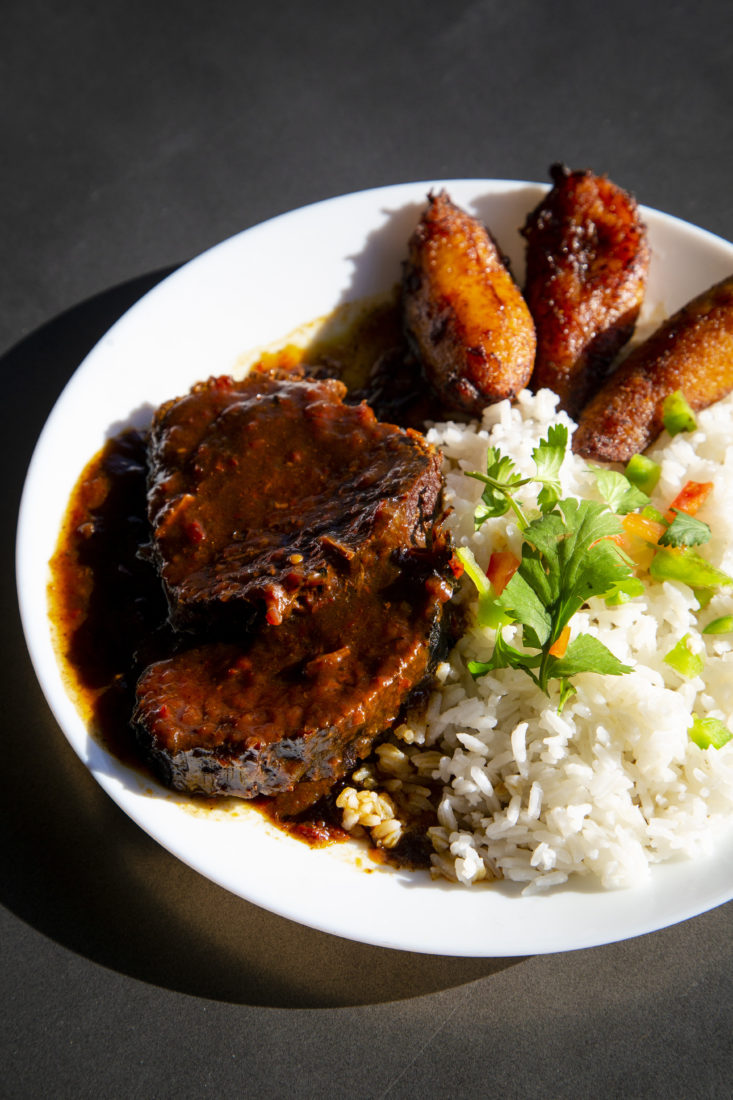
Swapping stories between mouthfuls is commonplace in restaurants. But at Global Café, something more is exchanged. Bracho believes a small yet significant transformation accompanies each transaction. “I am explaining some of who I am with my food,” she says. Sakkan agrees. “We’ve been so welcomed here, and it’s partly because we’re communicating with food; that is a good way to change outsider to friend.”
That sentiment forms part of Langer’s core purpose for the cafe. “People are enjoying this food and learning who’s prepared it,” Langer says, and “appreciating who they are as people, as individuals. That’s shifting perceptions.” Still, the food stands on its own. Langer calls it “ultra-authentic,” and each chef an “artist.” “This is a personal expression for them, and you don’t even think about asking them to Americanize it!” she says.
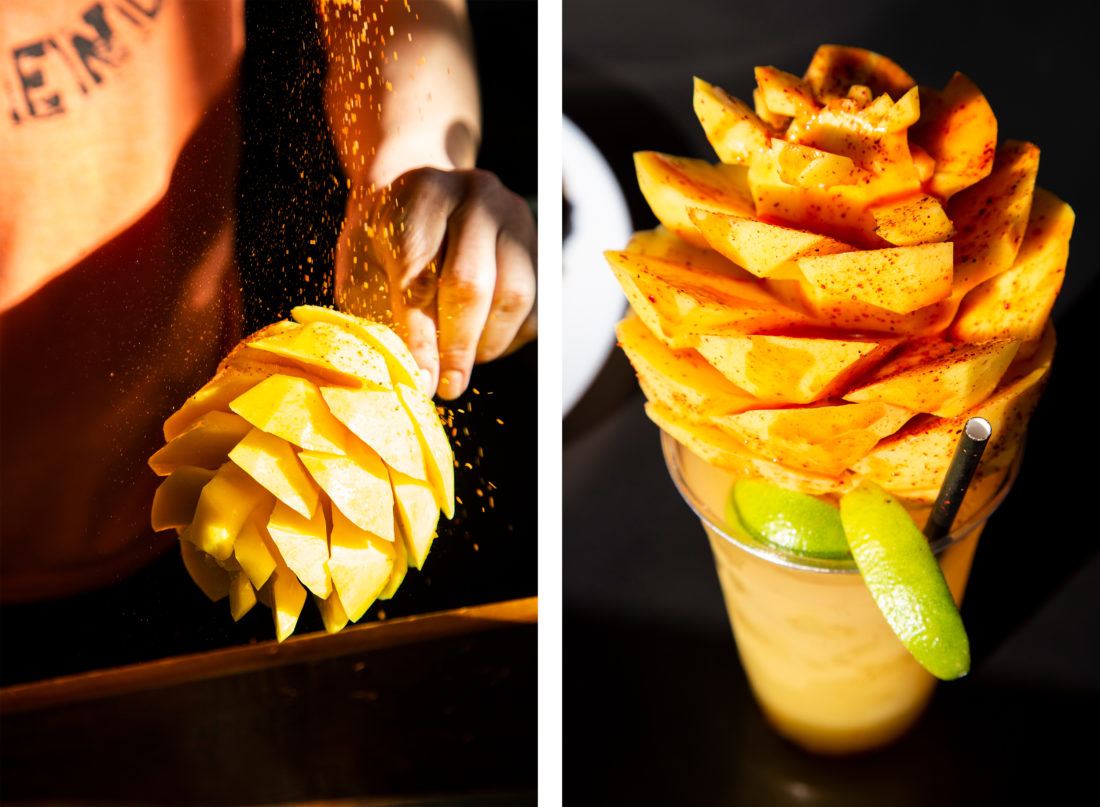
During the pandemic, Global Café’s mission broadened more: The chefs and assistants, feeling led to support exhausted local healthcare workers, began working long hours to prepare meals that are donated and delivered to area hospitals, as well as to organizations feeding those in need, and gathering funds to offset the associated ingredient costs. “It just fits who we are, and we feel privileged to help,” Langer says. Sakkan adds, “I’ve heard this said here by Southern cooks, but love is an ingredient in everything I make, too.”
Jennifer Stewart Kornegay is an award-winning freelance writer and editor based in Montgomery, Alabama. Her articles cover a variety of topics, including food and food culture, makers and travel, but the throughline is an emphasis on telling the stories of the interesting people behind them all.


